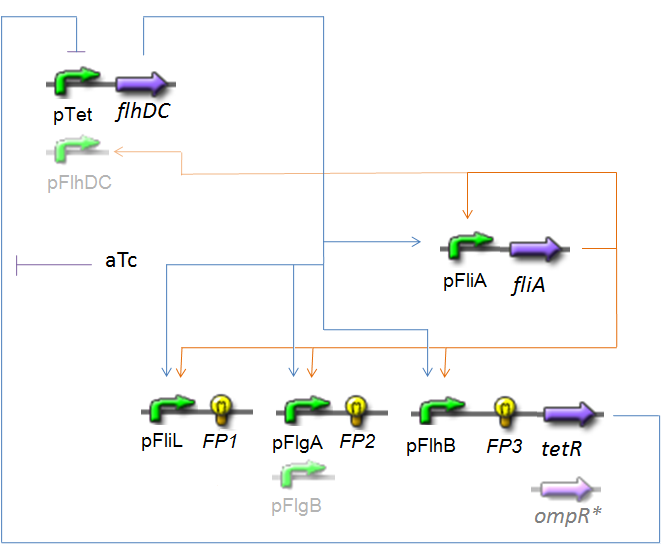Team:Paris/Modeling/FIFO
From 2008.igem.org
(Difference between revisions)
(→The Circuit) |
(→Resulting Equations) |
||
| (2 intermediate revisions not shown) | |||
| Line 20: | Line 20: | ||
==Resulting Equations== | ==Resulting Equations== | ||
| - | First, we kept the equations of the [[Team:Paris/Modeling/Oscillations#Resulting_Equations|Oscillations system]]. Then, we added at the end of the previous document the added equation (beginning page | + | First, we kept the equations of the [[Team:Paris/Modeling/Oscillations#Resulting_Equations|Oscillations system]]. Then, we added at the end of the previous document the added equation (beginning page 9), regard to the two more operons. |
<html><iframe width="935" height="600" src="https://static.igem.org/mediawiki/2008/f/f0/Equa_FIFO.pdf" frameborder="0"></iframe></html> | <html><iframe width="935" height="600" src="https://static.igem.org/mediawiki/2008/f/f0/Equa_FIFO.pdf" frameborder="0"></iframe></html> | ||
|}<br style="clear:both" /> | |}<br style="clear:both" /> | ||
Latest revision as of 11:27, 30 September 2008
FIFOThe CircuitWe are know studying the following circuit, the same as the one constituing the Oscillations, but with two more operons, under the induction of flhDC and fliA. The gene FPi codes for the i-th reporter protein we will use in our final system. We have two alternatives for the promoter before the second : pFlgA or pFlgB. These two alternatives are both studied in what follows.
Biochemical Assumptionssee Oscillations Every logical gates for synthetising the influence of fliA and flhDC are assumed to be SUM gates. Resulting EquationsFirst, we kept the equations of the Oscillations system. Then, we added at the end of the previous document the added equation (beginning page 9), regard to the two more operons.
|
 "
"

